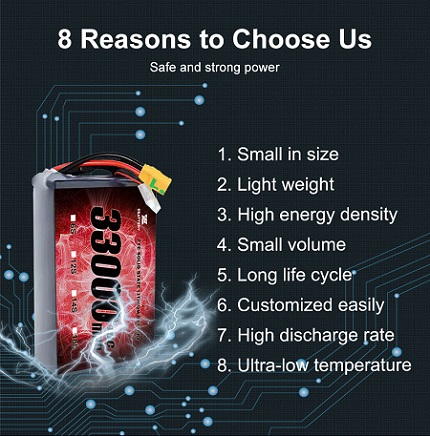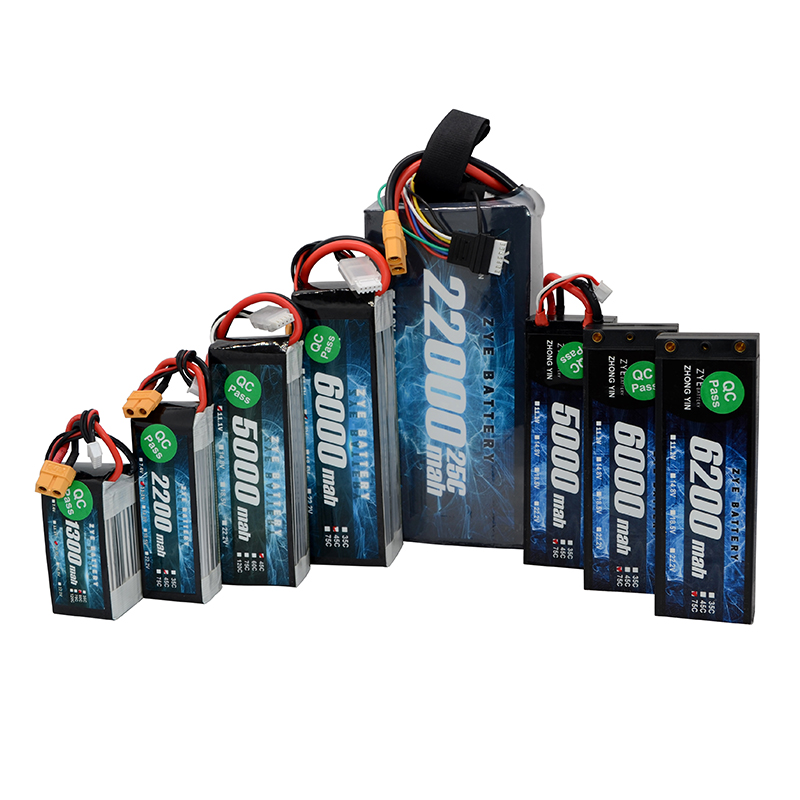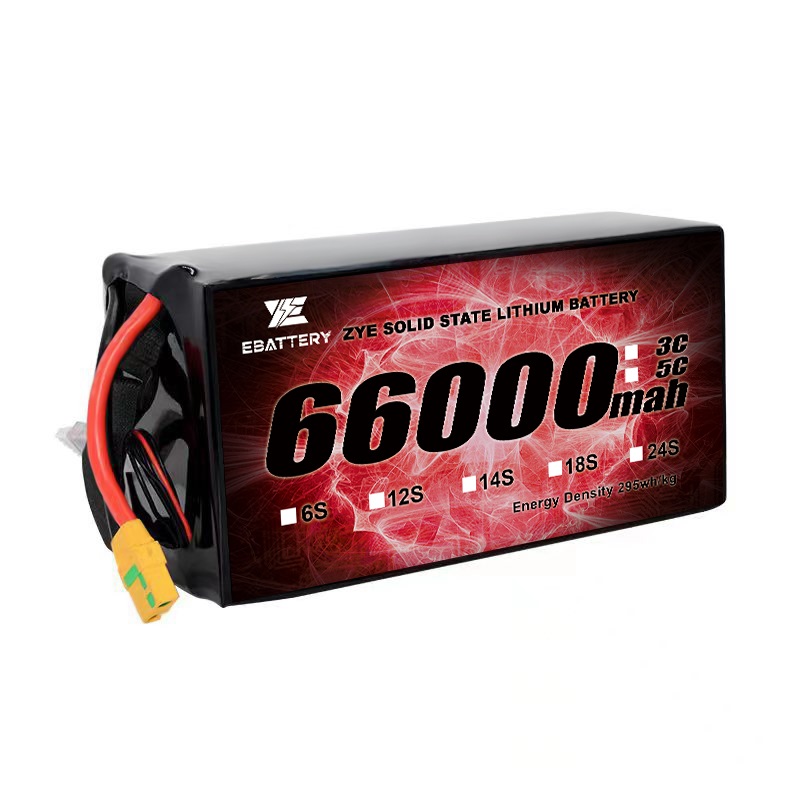Future Trends in the agricultural drone battery Power Systems
2025-04-27
As the agricultural industry continues to evolve, the role of drones in farming operations is becoming increasingly significant. One of the most critical components of these aerial helpers is their power source – the battery. Let's explore some exciting future trends in agricultural drone battery systems that promise to revolutionize farming practices.
Will Graphene Batteries Revolutionize Agricultural Drone Operations?
Graphene, a single layer of carbon atoms arranged in a hexagonal lattice, has been hailed as a wonder material in various industries. In the realm of agricultural drone battery technology, graphene holds immense potential to transform power systems.
Graphene batteries offer several advantages over traditional lithium-ion batteries:
1. Higher energy density, allowing for longer flight times
2. Faster charging capabilities
3. Improved durability and longer lifespan
4. Better performance in extreme temperatures
These properties make graphene batteries particularly suitable for agricultural drones, which often operate in challenging environmental conditions. The ability to fly longer and charge faster could significantly enhance the efficiency of farming operations, from crop monitoring to precision spraying.
However, the widespread adoption of graphene batteries faces some hurdles. The production cost of graphene is still relatively high, and scaling up manufacturing processes remains a challenge. Researchers are working diligently to overcome these obstacles, and we may see graphene-powered agricultural drones becoming more common in the near future.
Fast-Charging Tech: The Next Leap for Agricultural Drone Batteries?
Another exciting trend in agricultural drone battery technology is the development of fast-charging systems. Current lithium-ion batteries used in drones typically require significant downtime for recharging, which can limit productivity in large-scale farming operations.
Fast-charging technology aims to drastically reduce charging times, potentially allowing drones to be recharged in minutes rather than hours. This could revolutionize agricultural drone operations by:
1. Minimizing downtime between flights
2. Increasing the number of daily operations
3. Reducing the need for multiple battery packs
4. Improving overall farm productivity
Several approaches are being explored to achieve fast charging:
1. Advanced lithium-ion chemistries that can handle higher charging currents
2. Novel electrode materials that allow for rapid ion transfer
3. Improved thermal management systems to prevent overheating during fast charging
4. Development of high-power charging stations specifically designed for drones
While fast-charging technology shows great promise, it's crucial to balance charging speed with battery longevity and safety. Researchers are working to optimize these factors to create fast-charging batteries that can withstand the rigors of agricultural drone use.
Are Solar-Powered Drones the Future of Farming Battery Solutions?
Solar power has long been used in agriculture, but its application to agricultural drone battery systems is a relatively new and exciting development. Solar-powered drones have the potential to overcome one of the biggest limitations of current battery technology – limited flight time.
The concept of solar-powered agricultural drones involves:
1. Integrating lightweight, flexible solar panels into the drone's wings or body
2. Using high-efficiency photovoltaic cells to maximize energy capture
3. Implementing advanced power management systems to optimize energy use
4. Incorporating energy storage solutions to allow operation during low-light conditions
The benefits of solar-powered agricultural drones could be transformative:
1. Extended or potentially unlimited flight times during daylight hours
2. Reduced reliance on ground-based charging infrastructure
3. Increased operational range, allowing coverage of larger agricultural areas
4. Lower long-term operational costs
However, solar-powered drones face several challenges. The added weight of solar panels can impact drone performance, and energy generation is dependent on weather conditions. Additionally, current solar cell efficiencies may not be sufficient to power larger agricultural drones carrying heavy payloads.
Despite these challenges, research in this area is progressing rapidly. We're seeing advancements in ultra-lightweight solar cells and energy-efficient drone designs that could make solar-powered agricultural drones a viable option in the near future.
The integration of solar power with other battery technologies, such as graphene or fast-charging batteries, could create hybrid systems that offer the best of both worlds – extended flight times and rapid recharging capabilities.

The Impact of Battery Innovations on Precision Agriculture
As these battery technologies evolve, they're set to have a profound impact on precision agriculture. Improved agricultural drone battery systems will enable:
1. More frequent and detailed crop monitoring
2. Enhanced precision in pesticide and fertilizer application
3. Better data collection for farm management decisions
4. Increased automation of farming tasks
These advancements could lead to significant improvements in crop yields, resource efficiency, and overall farm productivity. As battery technology continues to progress, we can expect to see drones playing an increasingly central role in modern farming practices.
Environmental Considerations in Future Drone Battery Tech
As we look to the future of agricultural drone battery technology, it's crucial to consider the environmental impact. The agricultural industry is under increasing pressure to adopt sustainable practices, and drone technology is no exception.
Future battery developments are likely to focus on:
1. Reducing the use of rare or toxic materials in battery production
2. Improving battery recyclability and end-of-life management
3. Increasing energy efficiency to reduce overall power consumption
4. Developing biodegradable or eco-friendly battery components
These environmental considerations will play a crucial role in shaping the future of agricultural drone battery technology, ensuring that as we enhance farm productivity, we're also minimizing our ecological footprint.
Conclusion
The future of agricultural drone battery power systems is brimming with exciting possibilities. From graphene batteries to fast-charging technology and solar-powered solutions, these advancements promise to overcome current limitations and usher in a new era of efficient, sustainable farming practices.
As these technologies continue to evolve, we can expect to see drones becoming even more integral to modern agriculture, helping farmers to increase productivity, reduce resource use, and make more informed decisions.
Are you ready to embrace the future of agricultural drone technology? At ZYE, we're at the forefront of battery innovation for agricultural drones. Our expert team is committed to developing cutting-edge power solutions that meet the unique needs of modern farming operations. Don't let outdated battery technology hold your agricultural drone operations back. Contact us today at cathy@zyepower.com to learn how our advanced battery systems can revolutionize your farming practices and boost your productivity. Let's power the future of agriculture together!
References
1. Smith, J. (2023). Advancements in Agricultural Drone Battery Technology. Journal of Precision Agriculture, 45(2), 112-128.
2. Johnson, A., & Brown, B. (2022). The Promise of Graphene Batteries for Agricultural Drones. Drone Technology Review, 18(4), 67-82.
3. Lee, C., et al. (2023). Fast-Charging Systems for Agricultural Drone Applications. IEEE Transactions on Power Electronics, 38(6), 7123-7135.
4. Garcia, M., & Rodriguez, L. (2022). Solar-Powered Drones: A Sustainable Solution for Precision Agriculture. Renewable Energy in Farming, 29(3), 201-215.
5. Wilson, K. (2023). Environmental Considerations in Next-Generation Drone Batteries. Green Technology in Agriculture, 12(2), 89-103.
























































